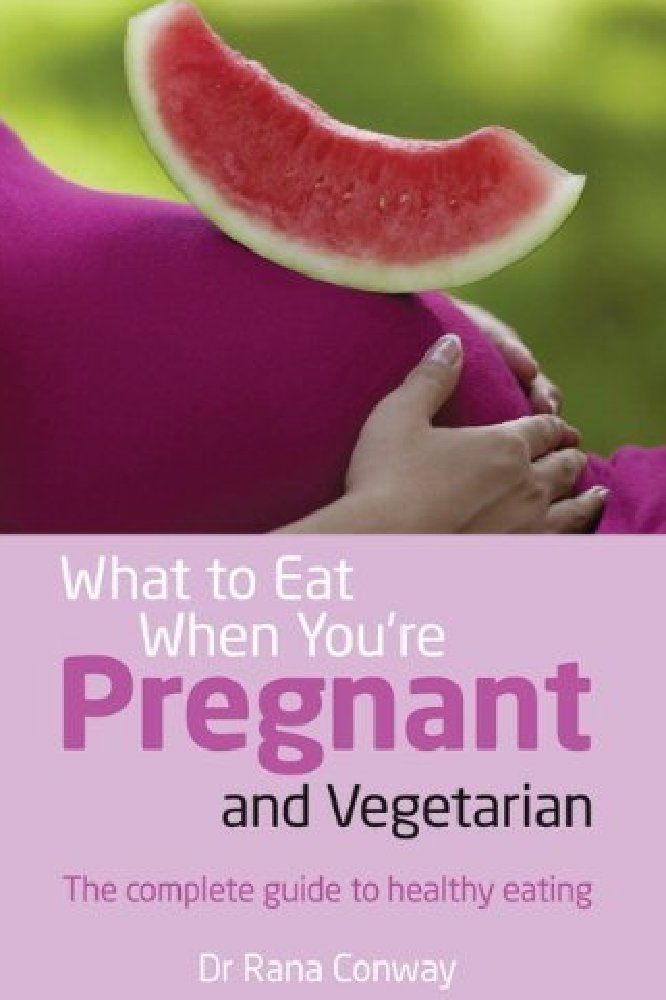
What to eat when you're pregnant
What to eat when you’re pregnant and vegetarian provides vegetarian and vegan women with all the information they need about diet and supplements for pregnancy. The advice is based on scientific evidence but is presented in a practical way so they can feel confident they're giving their baby the best start in life. And they can reassure any relatives who might be concerned.
What is your best tip for handling morning sickness?
Eat ginger. You can have it in tea, biscuits, stir-fries, soups or even chewing gum. It's an old remedy but it's been shown in trials to be one of the most effective.
What food affects a baby's development the most, both good and bad?
There is no single food that women should eat for their baby's development but a balanced diet with fruit and vegetables, protein and starchy foods and calcium-rich foods should supply all the nutrients needed. When it comes to which food has the worst effect on development it has to be alcohol, the effects of drinking too much have been shown time and again.
What are the single things you should and should not eat while breastfeeding?
Again it's all about balance rather than thinking of a super food that you just must have. It's particularly important to get enough calcium, which means milk and dairy foods or soya milk with added calcium, almonds and sesame seeds are also good sources. If women don't get enough they're baby is unlikely to suffer but their own bone health could be affected.
Can you give us one of your guidelines for caffeine and alcohol?
The advice from the Department of Health is not to drink more than 200mg of caffeine a day, which is about two mugs of instant coffee or three mugs of tea. It's best to avoid alcohol completely during pregnancy but if women choose to drink they shouldn't have more than 1-2 units of alcohol once or twice a week. A 175ml glass of wine contains 2 units and a small bottle of beer (275ml) contains 1.5 units, which may be more than some women realise.
What is one of the best ways to get the nutrients you need such as protein, omega 3 and iron?
Getting enough protein isn't a problem for most women, including vegetarians. However, they should try to have two portions of protein-rich foods a day, and aim for variety e.g. tofu or soya and lots of different beans, lentils, nuts and seeds, as well as eggs if women eat them.
The best source of long-chain omega 3 fatty acids is fish but vegetarians can take supplements made from algal oils (seaweed). These contain the same long-chain omega 3s which are important for a baby's brain and eye development. Seeds, such as flaxseeds, contain short-chain omega 3s but these don't offer the same health benefits.
When it comes to iron it's important to choose a breakfast cereal carefully as cereals with added iron can make a big difference to iron intake. Bread, nuts, lentils and kidney beans are other good sources of iron and if you have vitamin C at the same time this can boost absorption, for example, muesli and orange juice.
What is your professional background?
I did my degree in nutrition at King's College London about 20 years ago and then got a PhD for my research into the effects of eating a vegetarian diet in pregnancy. Since then I've worked on research projects looking at diet and blood pressure, iron absorption and weaning. I've also taught nutrition to trainee dieticians, doctors and midwives and written research papers, magazine articles and books.
What is the first action you should take if you are pregnant and vegetarian?
Like all pregnant women, vegetarians should take a folic acid supplement before pregnancy or as soon as they find out they're pregnant. They should also stop drinking alcohol and then find out more about what they should be eating and what they need to avoid.
Does being vegetarian provide more risk factors than if you are pregnant and a meat eater?
No, vegetarian women often eat healthier diets than meat-eaters. Some vegetarians live on chips and cheese but the average vegetarian is less likely to be over-weight than the average meat-eater and more likely to eat their 5-a-day, both of which have definite benefits in pregnancy. However, vegetarians have lower intakes of certain important nutrients, including iodine and long-chain omega 3 so it's important that they receive tailored advice about eating well.
Please tell us about your previous publications for fans of this book.
Meals without tears: how to get your child to eat healthily and happily (Pearson) 2007
What to eat when you're pregnant: including the A-Z of what's safe and what's not (Pearson) 2nd edn 2011
Weaning made easy (White Ladder) 2011
I was also asked to write the chapter about vegetarians for an academic book about pregnancy:
Rana Conway and Adrienne Cullum, Chapter 20: Vegetarians and vegans during pregnancy and lactation. In: Symonds M & Ramsay M (eds), Maternal-Fetal Nutrition During Pregnancy and Lactation, Cambridge University Press (2010).
What is next for you?
I'm writing a recipe book for babies and toddlers at the moment. My other weaning book, 'Weaning made easy', has been very popular but it doesn't have many recipes in. So, now I'm busy working on recipes and talking to very kind mums who are trying them out for me. The new book is due out at the beginning of next year.

